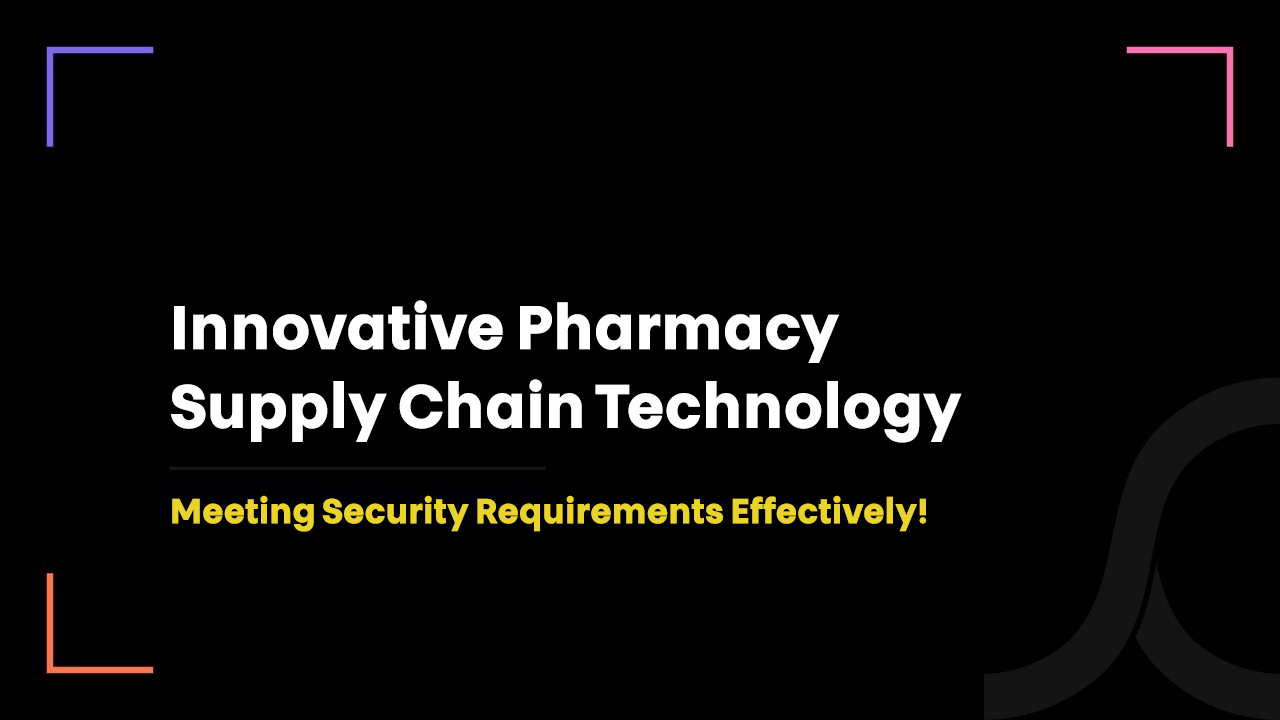The Rising Threat of Drug Shortages: Unveiling the Security Risks in Pharma Supply Chains

2 years ago
The pharmaceutical industry has been grappling with a growing concern,
Drug shortages.
These shortages not only pose significant challenges to patients and healthcare providers but also raise critical security risks within the pharmaceutical supply chain.
The interconnectedness and complexity of global supply chains make them vulnerable to various disruptions.
The Link Between Drug Shortages and Supply Chain Security
The alarming increase in drug shortages sheds light on the potential security risks associated with them.
Pharmaceutical supply chains are intricate networks that span multiple countries and involve numerous stakeholders.
Disruptions at any stage of the supply chain can have far-reaching consequences, compromising patient care and public health.
1. Counterfeit and Substandard Drugs
As drug shortages persist, the demand for vital medications often exceeds the available supply.
This scarcity creates a fertile ground for counterfeiters and illicit drug manufacturers to exploit the situation.
Counterfeit and substandard drugs, which may lack the required efficacy or safety standards, infiltrate the supply chain, posing significant risks to patient health.
These fraudulent products can bypass quality control measures and find their way into
- Pharmacies
- Hospitals
- The hands of vulnerable patients
2. Supply Chain Disruptions
Drug shortages can be triggered by a myriad of factors, including
- Manufacturing issues
- Regulatory hurdles
- Disruptions in the transportation (raw materials or finished products)
Natural disasters, political unrest, or trade disputes between countries can disrupt the smooth flow of pharmaceuticals, leading to delays or even complete cessation of drug production.
These disruptions can create opportunities for malicious actors to exploit vulnerabilities in the supply chain, potentially introducing counterfeit drugs or tampering with legitimate products.
3. Dependency on Single-Sourcing
To cut costs and streamline operations, pharmaceutical companies often rely on single-source suppliers for crucial raw materials or active pharmaceutical ingredients (APIs).
While this approach may provide short-term benefits, it increases vulnerability to supply chain disruptions.
A disruption in the production of a single-source supplier can lead to significant delays or shortages of essential medications.
It also limits the ability to quickly switch suppliers and diversify the supply chain, making it easier for bad actors to exploit these dependencies.
To safeguard the integrity of pharmaceutical supply chains and mitigate the security risks posed by drug shortages, proactive measures need to be taken.
Strategies to Address the Security Risks
1. Enhanced Supply Chain Visibility
Implementing robust tracking and traceability systems throughout the supply chain can help identify and prevent counterfeit or substandard drugs from entering the market.
Technologies like blockchain can enable end-to-end visibility, allowing all parties to track and verify the movement of medications from the manufacturer to the patient.
2. Supplier Diversity
Reducing reliance on single-source suppliers by diversifying the network of API and raw material providers can enhance supply chain resilience.
By fostering relationships with multiple suppliers, pharmaceutical companies can minimize the impact of disruptions and reduce the likelihood of shortages.
3. Collaborative Partnerships
Close collaboration between pharmaceutical companies, regulatory bodies, and law enforcement agencies is vital to combating the security risks in the supply chain.
Sharing information, intelligence, and best practices can help identify and dismantle criminal networks engaged in counterfeit drug production and distribution.
4. Regulatory Reforms
Governments and regulatory bodies should consider enacting stricter regulations and penalties for counterfeit drug production and distribution.
Essential steps in safeguarding the pharmaceutical supply chain are:
- Strengthening regulatory oversight
- Conducting regular inspections
- Ensuring compliance with quality standards
Developing Innovative Pharmacy Supply Chain Technology That Addresses Your Requirements Effectively
We are a leading healthcare software development company that exclusively caters to the healthcare industry.
With a deep understanding of the industry's intricacies, we provide revolutionizing healthcare software solutions to meet the unique needs and challenges faced by healthcare organizations.
We’ve developed a software solution that possesses an extensive feature set. Let us enlist some of the features here.
- Automated refill order reminders
- Automated refills
- Automated prescription renewal reminders
- Integration with the PBMS and international partner software
- Automated order placement in the international partner software
- Automated updates of the tracking details
- Limited medication visibility
- Automated emails and notification alerts from your pharmacy
- Order sets for specific requirements
- Reports of the saved costs
- No limitation on the number of partner pharmacies
- Customizable discount rates for each partner pharmacy
And the best part is,
You can get it customized as per your pharmacy needs.
We are committed to excellence and it is reflected in their emphasis on data security and compliance.
We adhere to stringent data protection protocols and employ robust security measures to safeguard sensitive patient information and ensure compliance with HIPAA and other regulatory standards.
